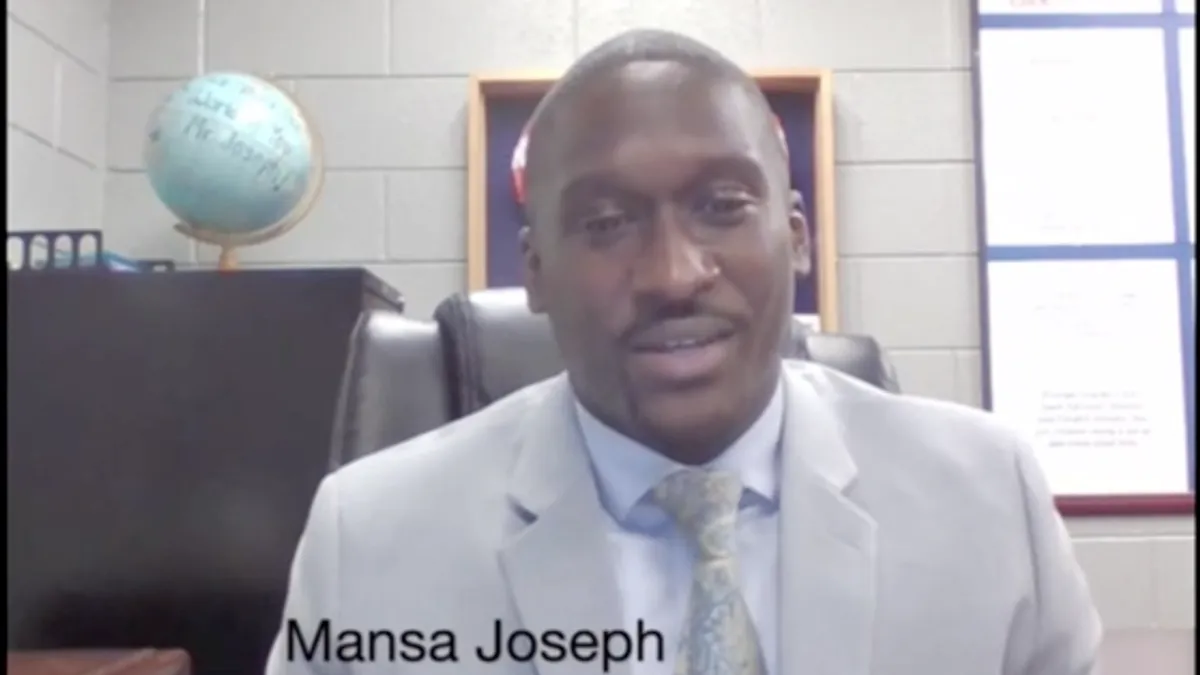Using strategies to prevent teachers from leaving the profession could save schools money and lead to better outcomes for students, including those with disabilities, said panelists during an Oct. 30 virtual webinar on teacher retention.
Programs such as mentoring, professional development and teacher leadership opportunities can ensure a stable workforce, said the panel members during the National Summit on Improving Effective Personnel for Children With Disabilities. The multi-day summit was hosted by the U.S. Office of Special Education Programs.
“The more supported teachers are in their early careers, the more likely they are to stay in the profession,” said OSEP Director Laurie VanderPloeg, who facilitated the webinars and urged school systems to “challenge the status quo” when developing solutions to retain teachers.
Teachers leave the field for many reasons, including low pay and little support from administrators. Special educators cite job demands such as excessive paperwork as another reason they leave teaching. A report from the U.S. Department of Education shows that in 2016-17, every state except Illinois and New Mexico reported shortages of special education teachers.
Education stakeholders are also concerned COVID-19 will add to the challenge of retaining qualified special education teachers because of cuts to state funding and an increase in retirements and resignations.
To help combat teacher shortages, the panelists recommend the following practices.
Empower teachers through training, leadership
VanderPloeg said principals can set the tone for the school culture, and because they are typically responsible for hiring teachers, administrators should be trained in technical and interpersonal skills so they can engage and motivate staff.
“We need to continue to enhance the training of our school leaders,” the OSEP director said.
Additionally, teachers need to have promotion and leadership opportunities that allow them to stay in the classroom, the panelists said.
For example, Opportunity Culture, an initiative by Public Impact, helps schools create multi-classroom leaders who lead small teams of teachers through co-planning, coaching and modeling instruction. Multi-classroom leaders can earn increased pay for their additional responsibilities.
Panelist Troy Smith, a consulting manager for Public Impact, said the effort to create new career pathways for educators helps extend the reach of effective teachers to more students. More than 300 schools are implementing or planning to begin Opportunity Culture models, according to Smith and the Opportunity Culture website.
“It provides opportunities for your best teachers to advance in their profession by moving up but not out of the classroom,” Smith said.
Giving teachers the ability to make suggestions can also help elevate educators' voices and opportunities, the panelists said. Jeffrey DeWitt, the chief financial officer for Washington, D.C., noted the district's government has a continuous improvement portal where employees can submit ideas.
Employees can get recognized and rewarded for their ideas and suggestions, DeWitt said. “If you see something wrong, don’t suffer in silence, you have the ability and right to fix it.”
Collaborate with other stakeholders
Schools can partner with other organizations in efforts to incentivize teachers to stay in the profession, the panelists said. For example, local and state governments, school systems and teacher preparation programs can work together to reduce taxes for educators, offer discounted housing and provide student higher education tuition loan relief, said VanderPloeg.
Some examples of collaborations created to retain teachers include the Georgia Department of Education’s Induction Summit, the Indiana Teacher Leaders Bootcamp and the Massachusetts Department of Elementary and Secondary Education’s Leadership Institutes, VanderPloeg said.
School systems can also use OSEP-funded technical assistance centers for finding best practices for special educator teacher retention. OSEP created a resource page that links to several documents and webinars from TA centers that focus on attracting, preparing and retaining effective personnel.
Meanwhile, professional organizations such as the Council for Exceptional Children can provide guidance, resources and networking opportunities to help schools find solutions to teacher vacancies, VanderPloeg said.
Rebecca Hines, an associate professor and academic program coordinator at the University of Central Florida, suggested districts partner with teacher preparation programs to enhance field experiences for prospective teachers. Preservice teaching experiences can take a service learning approach where a problem is presented and the student teacher works to find solutions.
“If we train teachers to think of opportunities to solve a problem, then they leave the program ready to customize learning,” Hines said.
The pandemic is an example of the need to know how to problem-solve, Hines said. “Classrooms are no longer the teacher standing in front of kids. I think it’s important to recognize that preparing [student teachers] for what’s actually happening right now may even need to be kicked up another notch,” she said.
Create a value-based culture
All the panelists emphasized the importance of making sure teachers feel valued. Hines said teachers need to be viewed as talent. DeWitt recommended schools and governments make sure new employees feel appreciated by offering the training they need to be effective in their jobs.
“One of the biggest things, if you want to retain people, it’s how they start depends on how long they stay,” he said. “If you throw a teacher or government employee into a job and you sit them at a desk and you say ‘Go figure it out,’ they’re probably not going to stay.”
"You need to make people aware on a daily basis how important their job is … and I don’t know how you can get a more important job than being a teacher,” DeWitt said.
During the panel discussion, Mansa Joseph, an assistant principal of instruction at Irmo Middle School in Columbia, South Carolina, referred to teachers as “rock stars and heroes for what they do.” He said teachers have one of the most important careers in the world.
"Our future leaders are sitting in classrooms right now being developed by the teachers that love and care for them," Joseph said, adding administrators can support teachers and other school staff by making sure all employees have what they need to be successful.
“Our job is to serve our heroes because they have to do the hard work,” Joseph said. “If we can do that, I think our teachers will be successful. I think our students will be successful.”






















